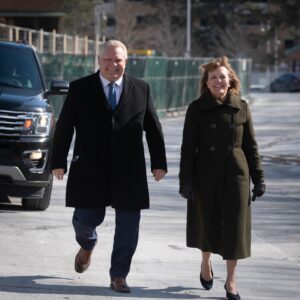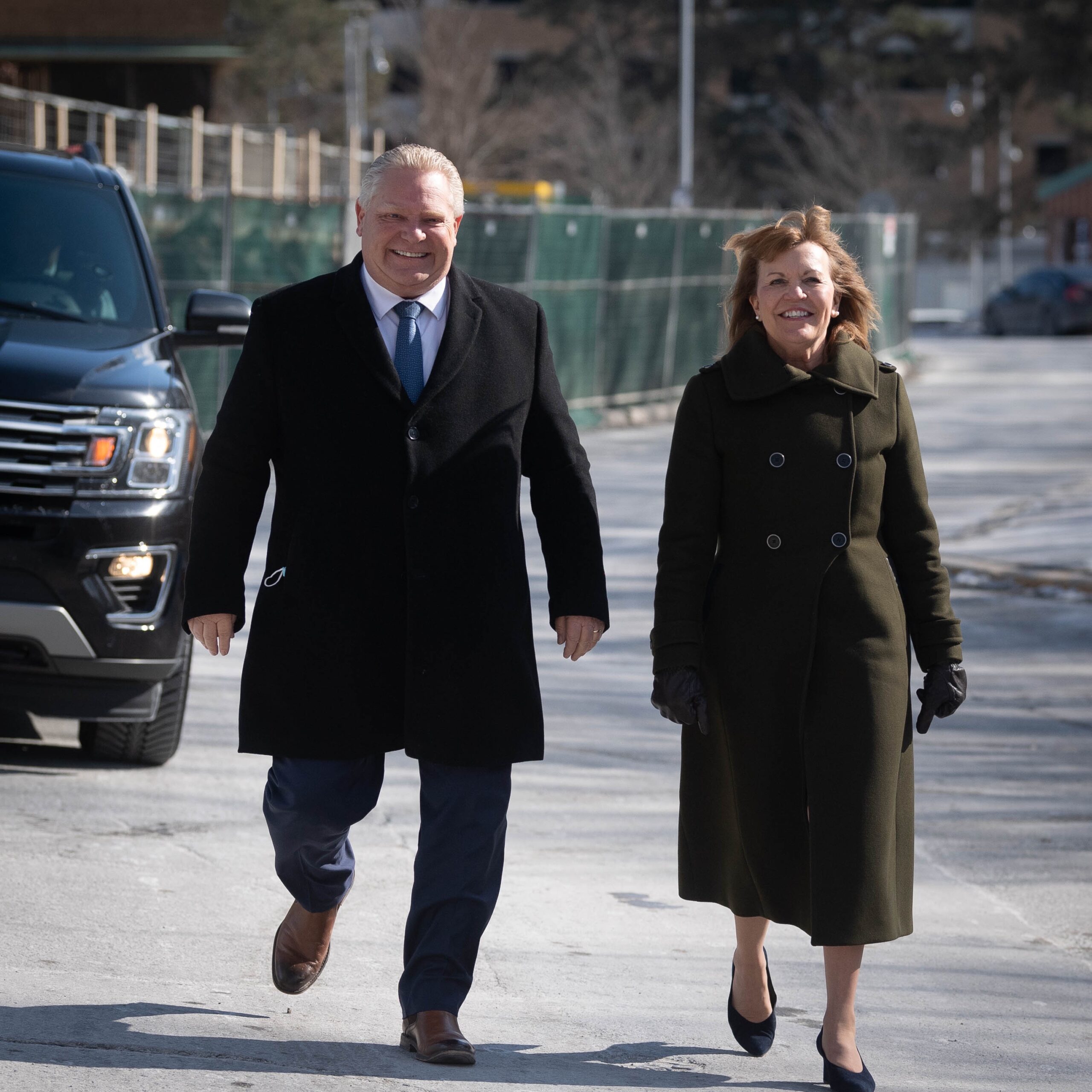Leger Poll: Tory first party, NDP and Liberals are tied

TORONTO – As the provincial election approaches by leaps and bounds, according to a new poll conducted by Leger on behalf of Postmedia News between February 25 and 27, Ontario’s Conservatives are ahead in preferences while the NDP and Liberals are head to head in the race for second place. In voting intentions, Doug Ford’s Tories are at 39%. Andrea Horwath’s NDP and Steven Del Duca’s Liberals are tied, with 27% respectively. “We are practically two months from the kick-off – said Andrew Enns, vice president in charge of Leger at the Winnipeg office – starting from now on you can already see where the parties are in terms of preferences”.
Ford appears to have come out of the last month relatively unscathed, but there is still a tough campaign between the NDP and the Liberals to earn the opposition role.
The poll shows that men are more likely to vote for the Progressive Conservative – 43% said they want to vote for The Progressive Conservative – while Horwath is more popular among women who intend to give their preference to the NDP (31%). Del Duca, on the other hand, is viewed favorably by 26% of the liberal male electorate and 27% of the female electorate.
This month, Premier Ford is the party leader with the most support (40%) followed by Horwath who ranks second with 39%.
Ontario voters’ preferences don’t seem definitive yet: 51 percent of voters who said they wanted to vote for conservatives, 61 percent of NDP voters, and 65 percent of Liberal voters said they had not yet made a final decision. This statement clearly shows that conservatives are not immune to a potential change in their support and that there is potential for some volatility between liberals and the NDP. Enns is convinced of this, seeing the election campaign as the tip of the scales. “One of the most important issues in the minds of voters going to the polls in June will likely be how Premier Ford has handled the easing of pandemic restrictions,” Enns said. The survey found that the vast majority of respondents (59%) agree with the Ford government’s decision to lift restrictions, end vaccination passports, and remove capacity limits for public places. Only 36% disagree.
Of those who share Prime Minister Ford’s decision, 76% are Conservative voters, 52% Liberals and 44% are from the NDP. The survey shows that men – as many as 63% – are more likely to be revoked than 42% of women.
The survey also assessed how removing the vaccine passport will affect respondents’ willingness to participate in certain activities. The majority said they will return to work (67%) and feel comfortable eating out at a restaurant (54%). However, 53% said they will refrain from attending events where there is a large crowd, as well as going to a nightclub or bar.
Another burning issue that can lean towards one party or another is the Freedom Convoy issue. 71% of those surveyed said they were concerned about public safety in cities targeted by truck drivers, 53% feared that the protest could spread to their communities. However, the vast majority of respondents (68%) never believed that the convoy would succeed in overthrowing the government.
The survey found that the majority of respondents (51%) were unhappy with the response given by Ford and the provincial government during the occupation of Ottawa by the truck drivers’ convoy. 56% were disappointed by Prime Minister Justin Trudeau. Of the respondents disappointed with the Ontario government, 64% were liberal voters and 69% were NDP sympathizers. Only 33% were conservative.
Meanwhile, surprisingly, Health Minister Christine Elliott (in the pic at the top, with premier Doug Ford) has announced that she will not run in the June elections. “I am deeply grateful for my 16 years of public life the last shared with Prime Minister Ford,” said the MPP of Newmarket-Aurora since 2018. And the independent Lanark-Frontenac-Kingston MPP Randy Hillier, first elected to the Tory ranks in 2007 and expelled from the caucus in March 2019, also spoke of farewell. Because of his controversial positions on restrictions and vaccines he has repeatedly been at the center of controversy.



